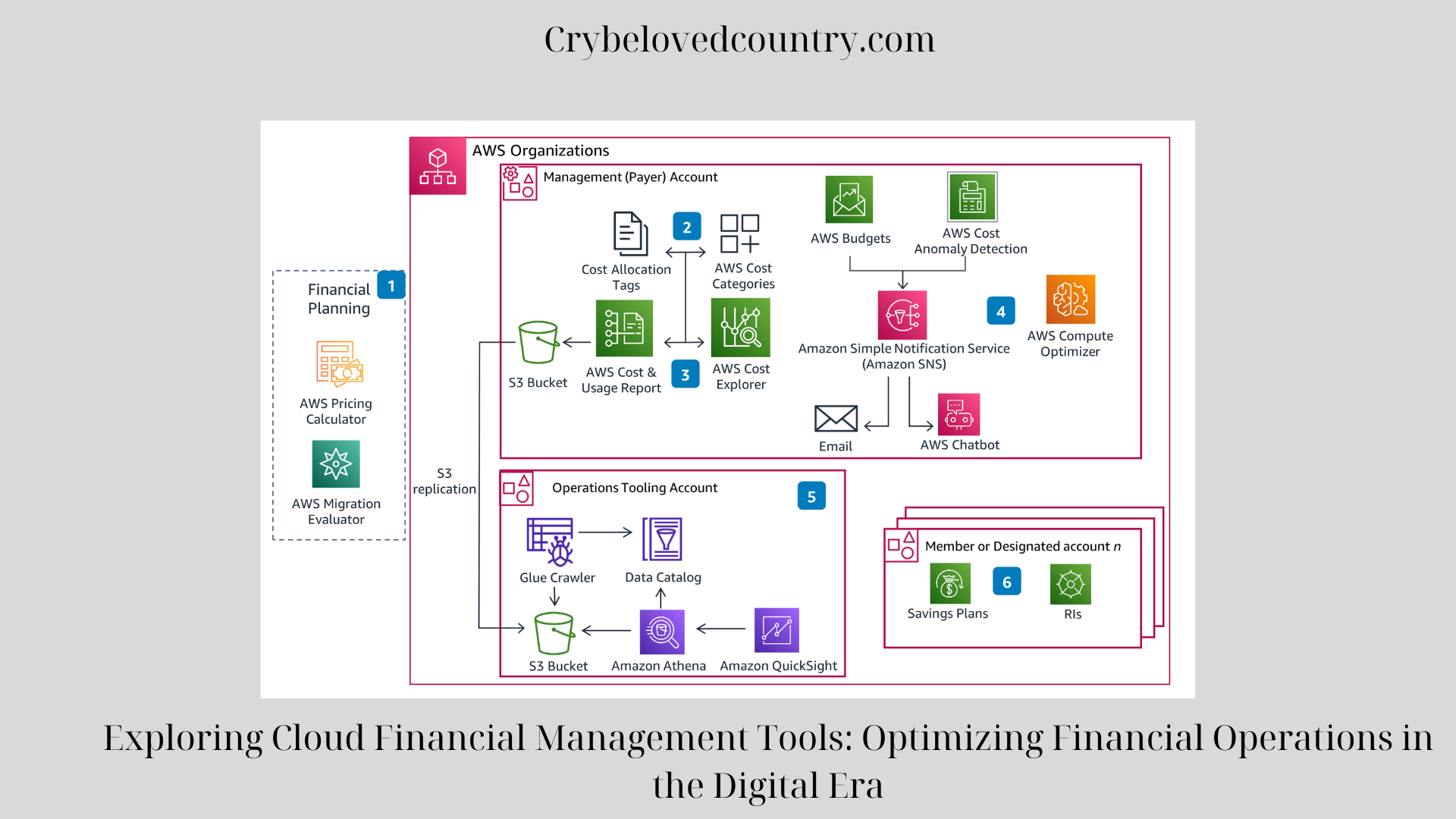In today’s rapidly evolving digital landscape, businesses face increasing pressure to streamline their financial operations and make data-driven decisions. Traditional manual financial management processes can be time-consuming, error-prone, and lack the agility required to keep up with the pace of modern business. This is where cloud financial management tools come into play. In this article, Crybelovedcountry will explore the benefits and functionalities of these tools and how they can optimize financial operations in the digital era.
Exploring Cloud Financial Management Tools: Optimizing Financial Operations in the Digital Era

Cloud financial management tools offer a powerful solution for businesses looking to optimize their financial operations in the digital era. By leveraging the benefits of automation, real-time data visibility, and advanced analytics, organizations can streamline their financial processes, improve decision-making, and drive business growth. As technology continues to advance, cloud financial management tools will play a pivotal role in shaping the future of finance, enabling businesses to thrive in an increasingly competitive landscape.
I. Understanding Cloud Financial Management Tools:
- Definition and Overview: Cloud financial management tools are software solutions that leverage cloud technology to perform various financial tasks, including budgeting, planning, forecasting, reporting, and analysis.
- Key Features and Functionality: These tools provide a range of features such as real-time data visibility, automated workflows, collaborative capabilities, customizable dashboards, and integration with other systems.
II. The Benefits of Cloud Financial Management Tools:
Cloud financial management tools offer a powerful solution for businesses looking to optimize their financial operations in the digital era. By leveraging the benefits of automation, real-time data visibility, and advanced analytics, organizations can streamline their financial processes, improve decision-making, and drive business growth. As technology continues to advance, cloud financial management tools will play a pivotal role in shaping the future of finance, enabling businesses to thrive in an increasingly competitive landscape.
- Enhanced Efficiency and Accuracy: By automating financial processes, cloud financial management tools reduce manual errors and save time, allowing finance teams to focus on more strategic activities.
- Improved Financial Visibility: Real-time data visibility and advanced analytics enable businesses to gain insights into their financial performance, identify trends, and make informed decisions.
- Scalability and Flexibility: Cloud-based solutions offer the flexibility to scale resources up or down based on business needs, ensuring that financial management tools can grow with the organization.
- Cost Savings: Cloud financial management tools eliminate the need for on-premises infrastructure, reducing hardware and maintenance costs. Additionally, they provide subscription-based pricing models that are more cost-effective than traditional software licenses.
III. Key Functionalities of Cloud Financial Management Tools:
- Budgeting and Planning: These tools enable businesses to create, manage, and track budgets, forecast financial outcomes, and analyze variances between actual and projected results.
- Financial Reporting and Analysis: Cloud financial management tools provide robust reporting capabilities, allowing finance teams to generate accurate financial statements, analyze financial data, and create custom reports.
- Cash Flow Management: These tools help businesses monitor and manage cash flows, optimize working capital, and improve liquidity.
- Risk Management and Compliance: Cloud financial management tools offer features to mitigate financial risks, ensure regulatory compliance, and facilitate audit processes.
IV. Integration and Collaboration:

- Seamless Integration: Cloud financial management tools can integrate with various systems such as enterprise resource planning (ERP) systems, customer relationship management (CRM) software, and payroll systems, ensuring data consistency and eliminating manual data entry.
- Collaborative Capabilities: These tools enable finance teams to collaborate in real-time, share information, and streamline communication, leading to improved efficiency and faster decision-making.
V. Considerations for Implementing Cloud Financial Management Tools:
By leveraging the benefits of automation, real-time data visibility, and advanced analytics, organizations can streamline their financial processes, improve decision-making, and drive business growth:
- Needs Assessment: Businesses should evaluate their specific financial management requirements and choose a tool that aligns with their goals and objectives.
- Data Security and Privacy: It’s important to ensure that the chosen cloud financial management tool provides robust security measures, data encryption, and compliance with relevant regulations.
- Scalability and Integration: Consider the scalability of the tool to accommodate future growth and its ability to integrate with existing systems and workflows.
- User-Friendliness and Training: Evaluate the ease of use and accessibility of the tool, and consider providing training and support to finance teams during the implementation process.
VI. Real-World Examples:
- Case Study 1: How Company X Streamlined Financial Planning and Analysis with Cloud Financial Management Tools.
- Case Study 2: The Benefits of Cloud Financial Management Tools for Startups and Small Businesses.
Conclusion:

Cloud financial management tools offer a powerful solution for businesses looking to optimize their financial operations in the digital era. By leveraging the benefits of automation, real-time data visibility, and advanced analytics, organizations can streamline their financial processes, improve decision-making, and drive business growth. As technology continues to advance, cloud financial management tools will play a pivotal role in shaping the future of finance, enabling businesses to thrive in an increasingly competitive landscape.
